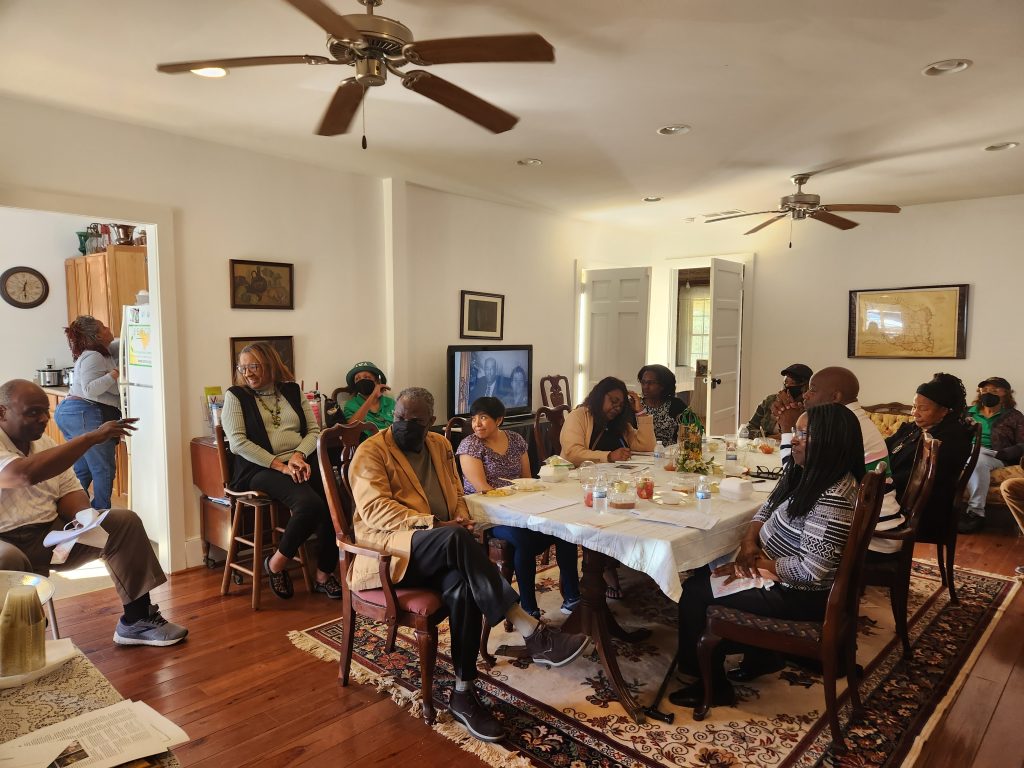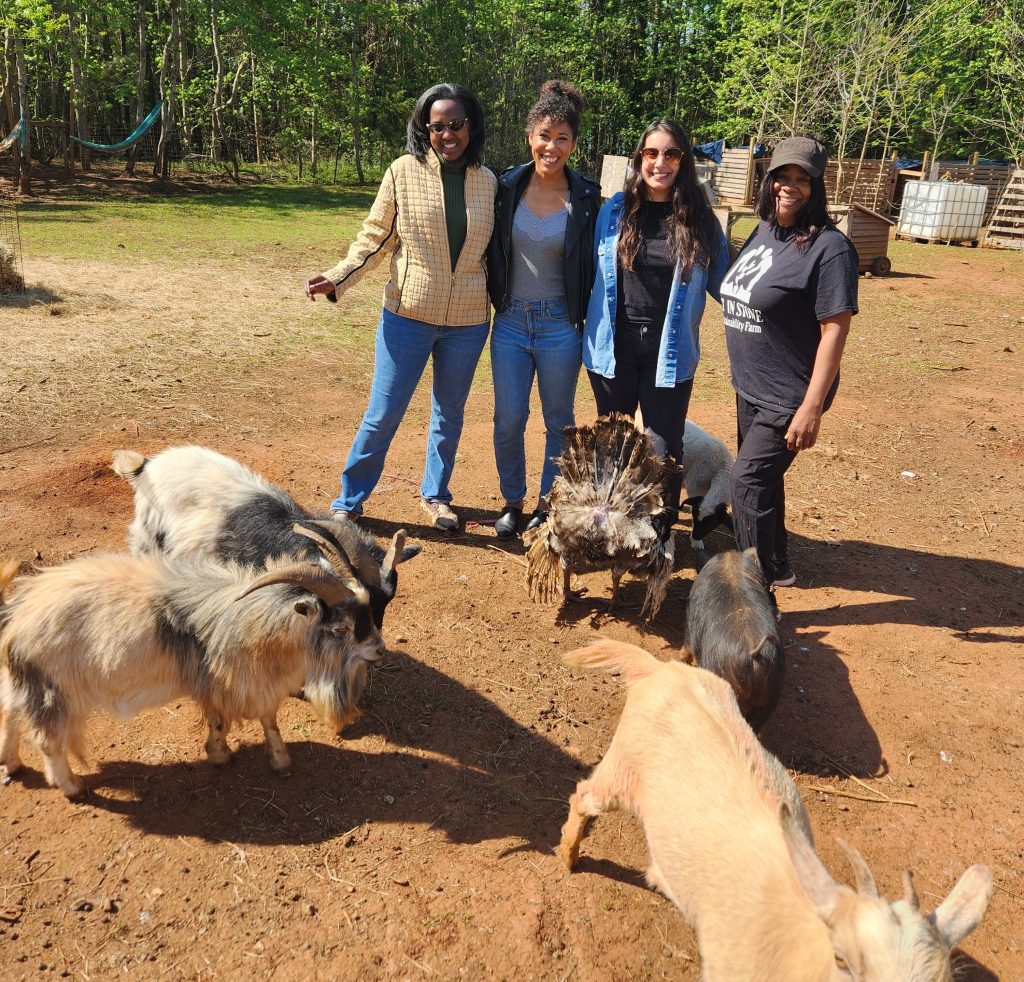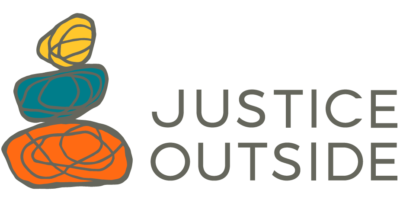In April, Justice Outside’s Liberated Paths team visited with community organizations working in the outdoors and environmental sectors in North and South Carolina to talk about our Liberated Paths grantmaking program, which seeks to support organizations in the region for the first time ever. Through the Liberated Paths program, we are working to create a more just and sustainable outdoor and environmental movement by shifting resources to and building power with Black, Indigenous, and Communities of Color. The Liberated Paths program supports outdoor initiatives and organizations that cultivate and celebrate the contributions of Communities of Color and affirm the many experiences and identities our communities hold, through grantmaking, capacity building, and network building.
We met with community leaders in lower Richland County, South Carolina, Columbia, St. Helena Island, and Roanoke Rapids, North Carolina, who are working tirelessly to foster community, protect the environment, and sustain traditional ways of connection to land. We were inspired by the stories of collaboration that highlight the transformative efforts taking place in the communities we connected with.

In the Historic Harriet Barber House, a gathering of community members provided the setting for an informational session about Justice Outside’s Liberated Paths Grantmaking. Led by Marie Barber, a descendant of Harriet Barber who now runs and maintains the historic house alongside other family members, the session aimed to engage the predominantly Black-led environmental efforts in the lower Richland area. Those present were enthusiastic about the opportunity and excited to hear about the work in which their fellow community members were engaged and how they could collaborate with one another to foster environmental justice, education, and stewardship. For example, we learned about Southeast Rural Community Outreach (SERCO), which works to reintroduce farming into communities to eliminate food insecurity in the lower Richland area and partners with Congaree National Park to broaden environmental education and access to outdoor recreation for the surrounding communities who have traditionally lacked access. We were affirmed in our choice of outreach location when one person at the meeting remarked “no one ever comes to lower Richland, thank you for coming here.”

A visit to Set in Stone Sustainability Farm in the Columbia area introduced us to the remarkable efforts of Selvbrea Stone and Jennifer Cunningham. Their mission is to engage young people in food systems work while advancing STEM education. Recognizing the lack of access to quality food in the area, Stone and Cunningham forged a partnership between Palmetto Learning Academy and Set in Stone to provide rich opportunities for youth to explore their heritage while cultivating a connection to the land.
During the trip, we also had the opportunity to attend the Coastal Cultures Conference hosted by the Gullah Geechee nation on St. Helena Island. This conference highlighted the importance of conservation, cultural preservation, and reinforcing the autonomy of the Gullah Geechee people. The conference, facilitated by Chieftess Queen Quet, gathered attendees from North and South Carolina, Georgia, and northern Florida. The event shed light on the multi-faceted work of the Gullah Geechee nation and emphasized the need for expansive thinking among funders and partners to support their important work on cultural preservation.
We also learned about the Center for Energy Education in Roanoke Rapids in North Carolina that works to bring education about renewable energy to the eastern part of the state. The center serves as a hub for community activities, including a summer camp, workshops on climate change, and workforce training. Notably, the Radiant Rays, a group of young people from local high schools, play a crucial role in educating the community about climate change and environmental justice issues. Their efforts demonstrate the power of youth engagement in fostering a sustainable future.
These stories from lower Richland County, Columbia, St. Helena Island, and Roanoke Rapids exemplify the strength and resilience of Black, Indigenous, and Communities of Color and the creative and collaborative ways in which they are working to preserve cultural heritage, conserve the environment, engage youth and foster connection to the outdoors and nature at the community level. Investing in these community-level organizations is the key for equity and justice in the outdoors and environmental sectors. We are so excited about our grantmaking in the Carolinas and looking forward to highlighting and sharing the important work of our grantee partners in the coming months.

